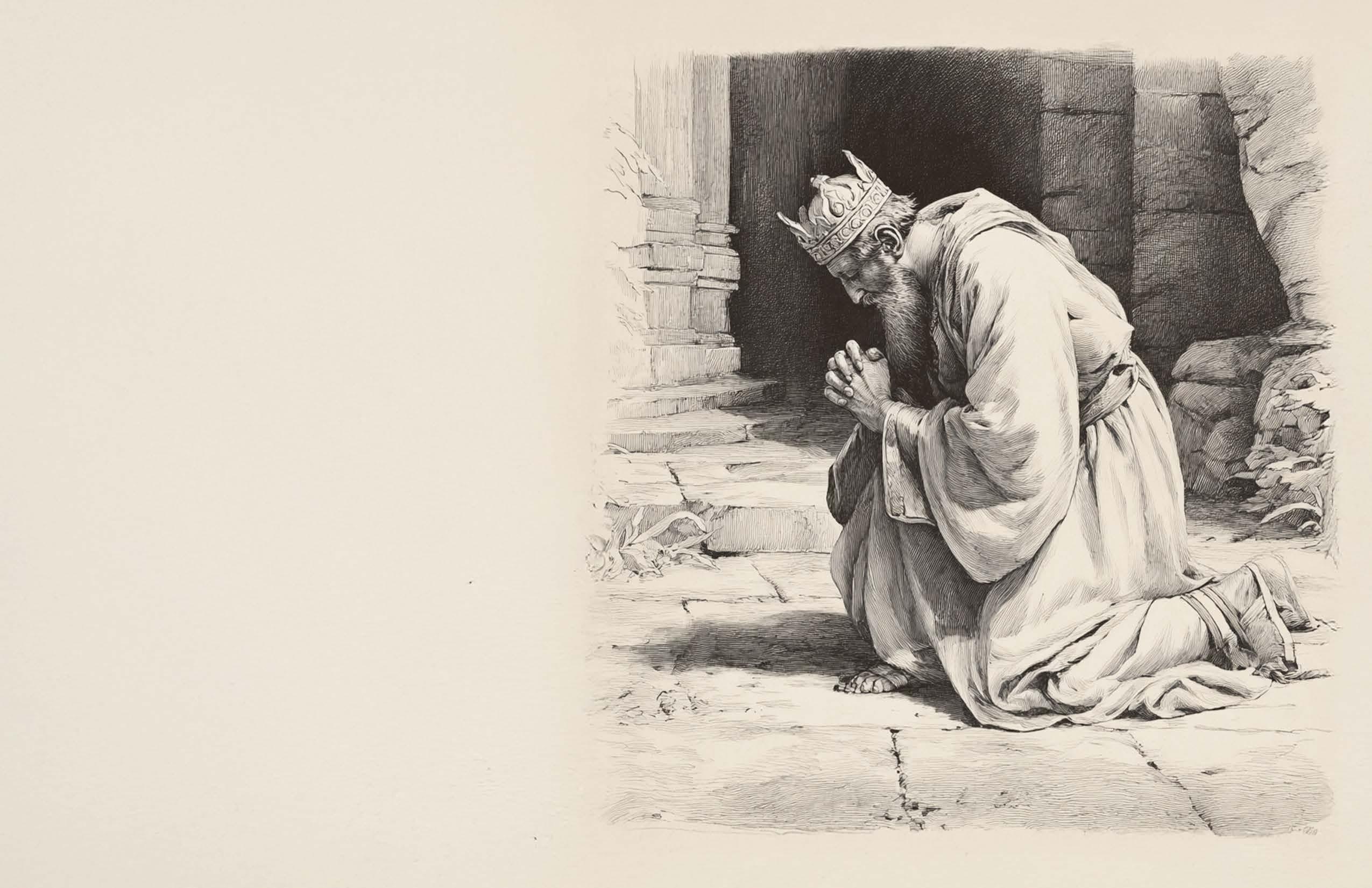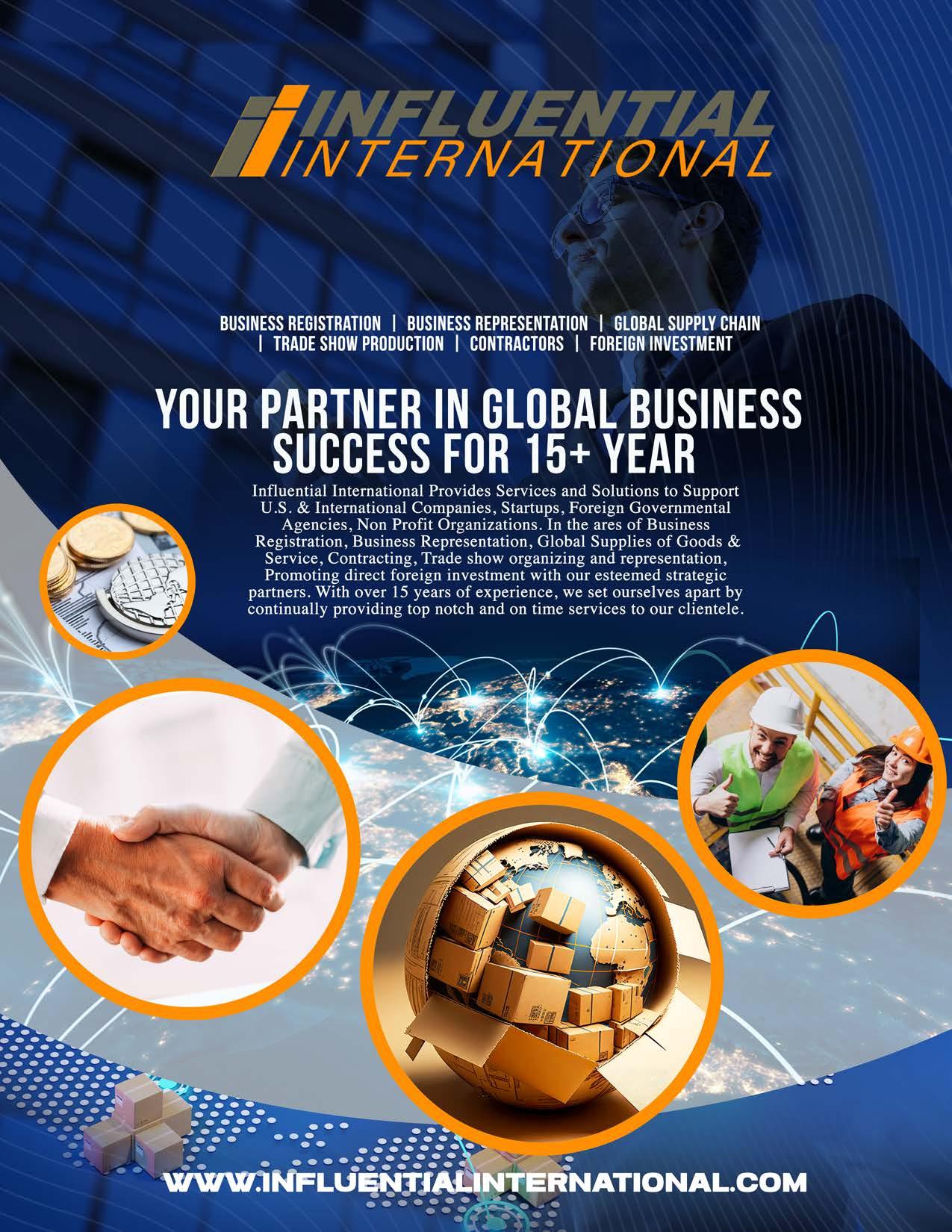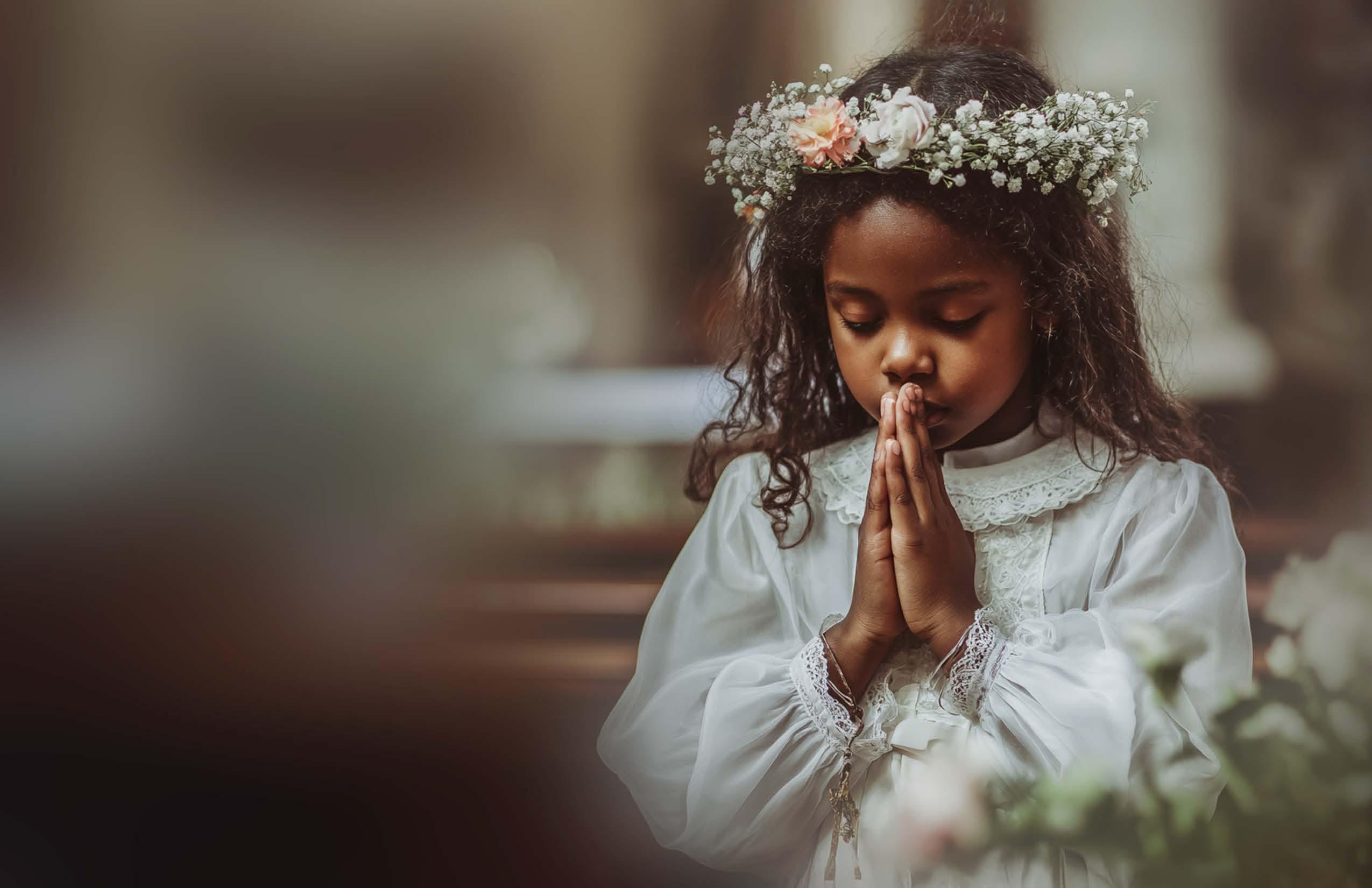






TThe October edition of Influential Magazine explores how investment goes far deeper than financial portfolios. From personal branding rooted in integrity to building children’s faith with innovative tools, from emotional healing as hidden capital to the spiritual laws of Kingdom economics, this issue redefines what it means to invest wisely. Across every feature, one truth emerges: the best returns come not from accumulation, but from planting seeds of faith, resilience, service, and legacy. Here’s a closer look at the powerful stories shaping this month’s theme of lasting influence through purposeful investment.
October Issue: Investments That Outlive the Market
The Power Within: Vaneasia Evans on Investing in Faith, Self, and Global Impact
When you meet Vaneasia Evans, one thing becomes clear almost immediately: her story is not only about where she has been, but about what she has invested—in God, in herself, and in the lives of others. Born in Hanover and raised in Kingston, she embodies the quintessential Jamaican spirit: resilient, ambitious, and unapologetically authentic.
Global Citizens: How Jamaicans Invest in the World and Bring It Home
Jamaica is a small island with an outsized presence. With just under three million people on the island and another three million living abroad, the Jamaican diaspora doubles the nation’s reach. These citizens abroad are not simply migrants; they are investors—planting seeds of Jamaican culture, education, business, and faith around the world.
The Business of Faith: Turning Spiritual Capital into Lasting Influence
When we talk about investment, the first things that come to mind are usually stocks, bonds, or real estate. These are measurable assets, evaluated by returns and market performance. But long before Wall Street, there was a different kind of investment that shaped kingdoms, preserved nations, and built legacies still influencing the world today. That investment is faith.
Investing in Emotional Wealth: Healing as Capital
When we think about investments, most people picture money: building a stock portfolio, saving for retirement, or acquiring property. These are important and tangible pursuits, but there is another form of capital that often goes ignored. It doesn’t show up on financial statements, yet it
affects every deal we make, every relationship we hold, and every dream we chase. That form of capital is emotional wealth.
The Next Generation: Building Children’s Faith Through Innovation
When we think of investments, the mind often turns to stocks, property, or retirement funds. These are critical, but there is an asset class that carries greater weight and longerlasting returns: children. They are the future workforce, the next leaders, and the inheritors of culture, values, and faith. How we invest in them today determines what society will look like tomorrow.
Travel with Purpose: Journeys that Enrich, not Just Entertain
For many, the word travel conjures images of sandy beaches, luxury hotels, and Instagram-worthy meals. Vacations have become synonymous with escape— stepping away from the ordinary to indulge in leisure. While rest is important, travel holds deeper potential. It can be more than a temporary getaway; it can be an investment.
In today’s digital age, the phrase personal brand has become a buzzword. Social media platforms are flooded with curated images, polished reels, and carefully scripted captions. For many, building a personal brand means crafting an online persona designed to attract attention, followers, and influence. But behind the filters and hashtags lies a sobering truth: a brand built on vanity is fragile, while a brand built on integrity is unshakable.
When most people hear the word legacy, they think of wills, estates, and financial inheritance. While these are important, they are only part of the picture. A true legacy is not measured only in bank accounts or properties, but in values, faith, and principles passed from one generation to the next.
The word economy usually evokes images of markets, currency exchange, and fiscal policy. Economists measure value in terms of GDP, inflation, and stock indexes. Nations rise and fall on the strength of their economies, and
“Influential Magazines, driven by its unwavering aim and mission, strives to be a catalyst for global business transformation. Our commitment extends beyond the conventional, as we envision Unlocking vast business potential in emerging economies. This endeavor creates an unparalleled opportunity for worldwide expansion and knowledge exchange. The emerging nations, marked by dynamic markets and untapped resources, beckon entrepreneurs, investors, and enterprises globally to partake in mutually beneficial ventures. Influential Magazines serves as the conduit for this transformative journey, shedding light on the visionary growth strategies, infrastructure development, and burgeoning consumer bases within the emerging nations. As these economies evolve and innovate, our mission is to foster international collaboration, creating a vibrant space where industries thrive, and insights are shared. Embracing the business potential in these emerging economies not only unlocks doors for unprecedented growth but also nurtures a global dialogue, enriching our collective understanding of diverse business landscapes and strategies. The emerging nations, through Influential Magazines, transcend being mere destinations for business, they also become dynamic hubs for cross-cultural learning and collaboration."

Tel: 1 469 9667050

hen you meet Vaneasia Evans, one thing becomes clear almost immediately: her story is not only about where she has been, but about what she has invested —in God, in herself, and in the lives of others. Born in Hanover and raised in Kingston, she embodies the quintessential Jamaican spirit: resilient, ambitious, and unapologetically authentic. From classrooms in Jamaica to lecture halls in Colombia, and now to the global hub of Hong Kong, Evans’ journey is a testimony that the greatest returns come not from chasing wealth, but from planting seeds of faith and discipline.
Her personal brand reflects a rare combination: the warmth of a cultural ambassador, the rigor of an instructional designer, the courage of a missionary teacher, and the joy of a traveler who carries Jamaica in her heart wherever she goes. For Evans, success has never been a matter of luck. It is the compound interest of investing deeply —in her spiritual life, in her education, in her courage to leap into new worlds, and in her belief that every encounter is a chance to create lasting influence.
Roots That Nurture: Jamaica as the First Investment
Like many Jamaicans, Evans’ beginnings were modest, but they were also rich in culture, community, and conviction. Hanover and Kingston
shaped her outlook in complementary ways—Hanover offered the slower rhythms of community and teaching, while Kingston immersed her in the creativity and challenges of city life. Both played a role in shaping her resilient spirit.
Her first investments were not in stocks or bonds but in people—specifically her students. Fresh out of university, she stepped into Jamaican classrooms at both the primary and secondary levels. Many of her students had already been written off by society. They came from difficult circumstances, often underestimated, and sometimes dismissed as unlikely to succeed. Evans, however, saw beyond the surface. She chose to invest in them, encouraging them with Christian principles, discipline, and the reminder that their worth was not defined by their surroundings.
At the same time, she faced her own trials. As a young teacher without certification, she endured discouragement from superiors who questioned her lesson plans and doubted her potential. Instead of breaking her spirit, these challenges pushed her to invest further in herself. She pursued postgraduate education with unrelenting focus, graduating summa cum laude with a Master of Education in Instructional Design and Technology. The achievement was more than academic—it was a declaration that faith and perseverance yield exponential returns.
Colombia: Immersion as Investment in Growth
Evans’ next major leap was into Colombia, where she lived for two and a half years. She describes the decision with characteristic candor: “I wanted to be immersed in the culture to learn more about the people and the language itself.”
Denied the chance to sit her Spanish CXC exams back in high school— because a teacher mistakenly assumed she was disengaged—Evans turned what could have been a closed door into a wide-open gateway. In Colombia, she taught at a police academy and a vocational training institute in Manizales. But the experience was more than professional. It was cultural immersion at its deepest level. She danced to the rhythms of salsa and vallenato, shared meals with locals, and lived in a society whose exuberance mirrored her Jamaican heritage.
That period of her life reflects a principle of investment many overlook: sometimes the best returns come not from financial capital, but from cultural capital—the ability to adapt, to connect, and to broaden one’s worldview. Colombia etched itself into her heart as her second home, and it equipped her with skills and perspectives that would prove invaluable for her next chapter.


Hong Kong: A Leap of Faith and Financial Independence
After Colombia, Evans briefly returned to Jamaica, but the restlessness of purpose remained. She considered Spain and Japan, but when a fellow Jamaican in Hong Kong asked her a pivotal question—“Do you want to explore culture, or do you want to achieve financial independence?”—her direction crystallized.
The decision was bold. Within weeks of applying, she had secured a position and prepared to move halfway across the world to a city where she knew no one. It was a step of faith, not just strategy. “I applied the same night,” she recalls, laughing at her decisiveness.
In Hong Kong, she began as a missionary teacher and eventually transitioned into a registered teacher with the Education Ministry. Though her title changed, her mission did not. She continues to see herself as a vessel for God’s work, shaping both minds and spirits. The city, one of the most expensive in the world, brought challenges—from high living costs to cultural differences to racial prejudice. Yet, every challenge became an opportunity.
When a student once used a racial slur, Evans responded not with anger but with education. She explained the weight of the word, guided the administration to address it sensitively, and later designed the school’s first diversity and inclusion program. It was an investment in understanding, and its impact continues to ripple through the institution.
She also authored children’s devotionals, prayer journals, and coloring books inspired by her missionary heart, blending her skills in education with her faith in Christ. These works are not merely publications—they are spiritual investments designed to multiply in the lives of children and families.
Building Brands of Faith: WOVAD and Scribes for Christ
As her professional and spiritual journeys matured, Evans began to recognize another need: resources for women and children rooted in faith. This realization led her to launch WOVAD—Women of Virtue and Destiny, a brand devoted to selfempowerment through God.
WOVAD’s flagship offering is a series of 10 Women’s 30-Day Prayer Journals, each focusing on vital areas of life such as business, emotional healing, love, and identity. The journals were born from Evans’ dual perspective as both a teacher and a Christian woman. She understood that women, much like her students, needed tools that were practical, structured, and spiritually uplifting. With each journal, WOVAD offers women a roadmap to invest daily in their faith and personal growth, reinforcing the principle that spiritual capital yields the highest returns.
At the same time, Evans’ love for teaching and her heart for ministry inspired another branch of her brand: Scribes for Christ. Initially sparked by her desire to provide resources for Sunday school children at her church, the vision grew into a 10-book series under the banner Color & Pray Bible Pictures for Young Hearts. These books combine scripture with interactive activities—coloring pages, puzzles, mazes, and games—that make faith both engaging and memorable for children.
The first offerings in the series—The Foundations, The Creation Story, Jonah, Noah, and The Beatitudes have already begun to shape young lives by embedding scripture into creative learning. More than books, they are tools of discipleship, giving parents, teachers, and churches accessible ways to nurture faith in the next generation.
Both brands, WOVAD.com and Scribes for Christ, reflect Evans’ ongoing commitment to invest in the empowerment of women and the spiritual formation of children. Together, they demonstrate that true influence is not only lived but multiplied—through products, platforms, and resources that equip others to walk boldly in faith.
For Evans, success is not defined by job titles or the number of stamps in her passport. Instead, it is measured in milestones that reflect both faith and discipline. One of her proudest achievements was paying off her student loans—no small feat in one of the costliest cities on earth. She upgraded her apartment, secured real estate investments back in Jamaica, and built the financial independence she once longed for.
Yet, she speaks about these accomplishments with humility. They are not trophies for display, but evidence of God’s faithfulness and the return on years of hard work. “I’ve achieved a lot, but I still have more goals to accomplish,” she says, with an eye toward future growth.
Travel is part of her story, too—but always framed as growth, not indulgence. From Panama to the Bahamas, from Dubai to Singapore, from Japan to South Korea, her journeys are not about luxury but about learning. They testify to what is possible when one invests in faith and self.
Evans often describes herself as “full of bread Jamaican,” carrying her culture everywhere she goes. In Hong Kong, her classrooms have been filled

At the same time, Evans’ love for teaching and her heart for ministry inspired another branch of her brand: Scribes for Christ and WOVAD
“The greatest investment is faith in God, for His Spirit gives us treasures that endure forever.”
with reggae rhythms, stories of Bob Marley, and even introductions to traditional dishes like ackee and saltfish. Her students often ask why she is so cheerful, and she responds with purpose: “It’s important to leave in the minds of especially children a picture of a happy, well-adjusted, confident Black woman.”
Representation itself becomes an investment. In societies with little exposure to Black professionals, her presence plants seeds of understanding and respect. She has turned awkward stares and curious hands reaching for her sister locks into teachable moments, demonstrating that cultural bridges are built not through anger but through patience and wisdom.
As a Jamaican and global citizen, Evans’ reflections during Black History Month capture the essence of her philosophy: “We are inferior to none.” Her message to the next generation is clear—push forward toward your goals, hold your moral standards high, and remain true to yourself.
This ethos is deeply aligned with the theme of investment. Just as financial capital grows through discipline and

wise decisions, so does character, resilience, and influence. For Evans, the most enduring wealth is the kind that cannot be measured in accounts but in lives touched and futures inspired.
Looking back on her path—from Hanover to Kingston, Colombia to Hong Kong—Evans’ life is proof that the greatest investment is in faith. Each leap required trust in God’s timing, courage to bet on herself, and resilience to persevere when challenges mounted.
In the language of investment, her story is about compound returns. Every seed of faith planted in Jamaica yielded fruit in Colombia. Every cultural lesson in Colombia prepared her for breakthroughs in Hong Kong. Every trial faced in Hong Kong reinforced her global mission.
She has not simply accumulated experiences; she has reinvested them— into students, into books, into ministries, and into the global conversation about diversity, faith, and resilience.
Though Hong Kong remains home for now, Evans’ journey is far from over.
She continues to write, mentor, and invest in educational projects that blend faith with pedagogy. She has her eyes set on Europe for future travels, but her vision extends beyond geography. It is about leaving a legacy of faith, cultural pride, and empowered representation wherever she goes.
Her story reminds us of a truth central to Influential Magazine: real influence is built through wise investments. When those investments are directed first to God and then to oneself, the returns are limitless.
The life of Vaneasia Evans is a masterclass in investment strategy— though not in the Wall Street sense. Her dividends are measured in changed lives, broadened cultures, and strengthened faith. She teaches us that the power within is not unlocked by chance, but by consistent, intentional, faith-filled investing.
In celebrating her journey, Influential Magazine honors not just an individual, but a principle: those who invest in God and themselves create ripples of influence that extend far beyond borders.


Jamaica is a small island with an outsized presence. With just under three million people on the island and another three million living abroad, the Jamaican diaspora doubles the nation’s reach. These citizens abroad are not simply migrants; they are investors— planting seeds of Jamaican culture, education, business, and faith around the world. Their lives demonstrate a profound truth: Jamaica’s most valuable export is its people, and the returns on that investment continue to shape industries worldwide.
Wherever you travel—whether it’s London, New York, Toronto, or Tokyo —you are likely to encounter the unmistakable rhythm of Jamaica. It may be heard in the bassline of a reggae song, felt in the speed of a sprinter, or tasted in a plate of jerk chicken served thousands of miles from Kingston. But beyond music, sports, and cuisine, Jamaicans are influencing classrooms, boardrooms, and ministries. Their reach is not accidental. It is the fruit of resilience, faith, and ambition—an investment strategy written into the DNA of the Jamaican people.
Education has long been one of Jamaica’s strongest exports. From primary school teachers in the Cayman Islands to university lecturers in the

United States and Asia, Jamaican educators are shaping minds across the globe. Take Vaneasia Evans, featured on this issue’s cover. Born in Hanover and raised in Kingston, she has invested her faith and skills in students from Jamaica to Colombia to Hong Kong. Her journey is one of resilience, cultural exchange, and purposeful living. Like Evans, countless Jamaican educators have carried their chalk and charisma to foreign classrooms, demonstrating that teaching is one of the most powerful forms of global investment. Every Jamaican teacher abroad plants seeds of discipline, creativity, and cultural pride. And those seeds bear fruit not only in the lives of their students but also in the reputation of Jamaica as a nation of excellence.
The entrepreneurial spirit is equally strong. Across major cities, the diaspora has transformed communities by opening restaurants, building tech startups, and pioneering ventures that blend Jamaican identity with global innovation. Consider the Jamaicanowned eateries that have become cultural landmarks in cities like London and Toronto. What began as small family operations are now multilocation brands introducing Jamaican cuisine to millions. Younger generations of Jamaican entrepreneurs
are also launching businesses in digital media, wellness, and fashion, creating global platforms that extend the island’s influence. This is Brand Jamaica in action—not just music and sport, but business savvy exported abroad. Each entrepreneur represents an investment vehicle: transforming heritage into opportunity, and opportunity into global presence.
If Jamaica has a universal calling card, it is music. From reggae to dancehall, the island’s rhythms have reshaped global soundscapes. The influence is undeniable: reggae became the soundtrack of resistance movements worldwide, while dancehall beats laid the foundation for modern hip-hop, reggaeton, and Afrobeats. The diaspora plays a crucial role here. Jamaican DJs in New York in the 1970s pioneered the sound system culture that directly inspired the birth of hip-hop. Today, Jamaican producers and artists collaborate across continents, leaving fingerprints on pop, rap, and even Kpop production. This cultural investment has one of the highest returns imaginable: the world not only consumes Jamaican music but integrates it into its own artistic DNA.
Jamaica’s name is also synonymous with speed, strength, and stamina.
Athletes like Usain Bolt and ShellyAnn Fraser-Pryce have become global icons, not only for their medals but for their embodiment of discipline and charisma. Beyond track and field, Jamaicans excel in football, cricket, and netball, with diaspora athletes representing clubs and nations across Europe, North America, and Asia. Each victory is more than a personal achievement—it is another dividend of Jamaica’s investment in excellence. Sports is perhaps the most visible form of Jamaican global influence, but it also creates pathways for economic and cultural exchange. Every Jamaican athlete abroad becomes both ambassador and investor, multiplying the reach of the island’s influence.

While Jamaicans abroad contribute to global industries, they also maintain strong ties to home. Remittances— funds sent back by the diaspora—are a lifeline for the Jamaican economy, amounting to billions annually. But beyond financial transfers, there is also intellectual remittance: skills, mentorship, and cultural exchange flowing back to the island. Diaspora Jamaicans establish scholarships, sponsor schools, fund businesses, and mentor the next generation. These actions prove that investing abroad is never about leaving Jamaica behind—it is about extending Jamaica’s influence so that the island continues to reap the rewards.
To see the diaspora’s impact, you need
only look at individual stories. Marcus Garvey’s vision of Pan-Africanism and global Black empowerment remains one of the greatest examples of Jamaican influence abroad. His movement was both ideological and economic—investing in the empowerment of people across continents. Thousands of Jamaicans who migrated during the Windrush generation became teachers, nurses, and builders, transforming post-war Britain. Their legacy is seen today in the strong Caribbean community that continues to enrich British society. From Silicon Valley to fintech startups in Toronto, Jamaican-born innovators are entering industries once far removed from the island. Their presence signals a shift— Jamaica is not only an exporter of
culture but of technological expertise. And in ministry, Jamaican pastors and missionaries have established churches across the globe, ensuring that faith remains one of the island’s strongest exports. Each of these stories is a testament: Jamaicans abroad are not just surviving, they are shaping societies.
In financial terms, an investment is judged by its return. For Jamaicans abroad, the return is measured not only in personal success but in influence. They invest their labor, creativity, and faith into foreign lands, and the return is a world that knows Jamaica not just for its beaches but for its brilliance. As Vaneasia Evans puts it, “Full of bread Jamaican and I carry that everywhere I

go.” This unapologetic pride is itself a form of investment—rooted in identity, yet bearing global fruit. The diaspora proves that influence does not require leaving heritage behind. Instead, the Jamaican identity becomes the very asset that fuels global success.
The future of Jamaica’s diaspora is promising. As the world grows more interconnected, the reach of Jamaican influence will only expand. Digital platforms allow music, business, and education to cross borders instantly. Young Jamaicans at home and abroad are leveraging this global stage to amplify their voices. But the lesson is timeless: the greatest export will always be the people themselves. Whether teaching in Hong Kong, sprinting in
London, or launching businesses in New York, Jamaicans continue to prove that influence is not bound by geography.
Jamaica’s global citizens embody the principle that influence is a form of investment. By carrying their culture, faith, and creativity abroad, they transform lives and industries while reinforcing their ties to home. They remind us that investing abroad is not abandonment—it is multiplication. And in the global marketplace of ideas, music, sport, and enterprise, Jamaica continues to punch far above its weight. The world is richer for it. And Jamaica, both at home and abroad, reaps the dividends.
When we talk about investment, the first things that come to mind are usually stocks, bonds, or real estate. These are measurable assets, evaluated by returns and market performance. But long before Wall Street, there was a different kind of investment that shaped kingdoms, preserved nations, and built legacies still influencing the world today. That investment is faith.
Faith, when nurtured, becomes a form of capital. It is not tangible like money, but it produces tangible results: integrity in leadership, resilience in crisis, vision for growth, and generosity that transforms communities. Spiritual capital, unlike financial wealth, cannot be stolen or devalued. It compounds over time, shaping character, broadening influence, and leaving a legacy that far outlives personal accomplishments.
This is what we call the business of faith. It is not

about commercializing the gospel or reducing God to a profit center. Rather, it is about understanding that faith itself is the first and most enduring investment. Those who prioritize it find that their influence multiplies across generations, industries, and cultures.
Faith as spiritual capital is not a new idea. Throughout history, men and women have leaned on God’s promises and watched doors open that talent alone could not unlock. Joseph, the son of Jacob, went from prisoner to prime minister because of his faith and wisdom in interpreting dreams. Esther, a young Jewish woman in Persia, leveraged faith and courage to save her people when political forces threatened them. David, before he was king, trusted God against impossible odds and became Israel’s greatest ruler.
Perhaps the clearest example, though, is Solomon, son of David. When God asked him what he desired most as a new king, Solomon did not ask for wealth, long life, or military victories. He asked for wisdom to govern his people well. That prayer was an investment of spiritual capital. He placed faith in God’s ability to guide him rather than his own ability to accumulate riches or power.


Perhaps the clearest example, though, is Solomon, son of David. When God asked him what he desired most as a new king, Solomon did not ask for wealth, long life, or military victories. He asked for wisdom to govern his people well. That prayer was an investment of spiritual capital. He placed faith in God’s ability to guide him rather than his own ability to accumulate riches or power.
The result? God gave him wisdom unlike any other ruler in history, and because he invested in wisdom first, wealth and influence followed. Solomon’s kingdom became a center of learning, trade, and culture. Nations traveled to hear his judgments and see his prosperity. His story shows us the principle that defines the business of faith: when you invest first in God, the returns are multiplied in every other area.
So what does spiritual capital look like in our modern world? In the lives of everyday people, it shows up in the form of prayer, integrity, service, and resilience. For some, it becomes the foundation of a business that serves rather than exploits. For others, it is the compass for leadership decisions that prioritize people over profit. For still others, it inspires creative expressions—books, music, coaching, teaching—that uplift and empower.
Consider the rise of faith-driven entrepreneurs who openly credit God for their guiding principles. They are not building wealth for wealth’s sake but creating companies that serve communities, protect workers, and reinvest in social good. Their faith is the lens through which every transaction, every product, and every relationship is filtered.
Faith-driven leaders also show up in the nonprofit and ministry space. Churches that plant schools, feed communities, or open counseling centers are practicing the business of faith. Their “profit” is measured in transformed lives and restored hope. Every act of service is a reinvestment of spiritual capital back into society, producing ripple effects far beyond the initial seed. Even in the world of corporate leadership, spiritual capital can be a quiet but powerful driver. Executives who begin their day in prayer, who make ethical
decisions under pressure, and who lead with humility often find themselves with long-term credibility and loyal teams. Integrity becomes their brand. While competitors may chase short-term gains, they invest in trust, and trust pays dividends no stock ticker can track.
In education, teachers who bring faithinformed values into the classroom— discipline, compassion, respect—shape future leaders. They may not mention scripture directly, but their lives are testimonies. Their classrooms become incubators where spiritual capital is deposited daily into young hearts and minds.
Artists, too, operate in the business of faith when they use their platforms to inspire rather than degrade. A song that uplifts, a poem that points toward hope, or a painting that reflects God’s beauty is a deposit into cultural capital that influences societies far beyond the artist’s lifetime.
It’s important here to make a distinction. The business of faith is not the prosperity gospel. It is not about turning prayer into profit or using God as a tool for financial advancement. That is exploitation, not investment. The real business of faith is about using faith as a foundation to build something that lasts—whether it’s a family, a community project, a business, or an entire movement.
This is why spiritual capital is so critical in today’s world. Financial systems fluctuate, currencies lose value, and markets collapse. But spiritual capital endures. A person of faith can weather storms because their hope is anchored in God, not in external conditions. Their decisions are less reactionary and more principled, giving them a unique stability in uncertain times.
example, it is often faith-based organizations that arrive first with food, shelter, and comfort. They may not have the deepest pockets, but their spiritual capital—the trust of communities, the conviction to serve, and the discipline to organize—yields an outsized impact.
We also see it in global missions. Missionaries and Christian educators invest years in foreign lands, teaching, mentoring, and serving communities where resources are scarce. Their return is not financial but eternal—changed lives, uplifted communities, and the spreading of hope in regions often overlooked by the world.
On the personal level, spiritual capital is what sustains individuals through challenges. Entrepreneurs who have faced bankruptcy but rebuilt stronger, families who endured tragedy but held on to faith, and individuals who battled illness yet remained hopeful all testify to the same truth: faith is the investment that carries you when everything else fails.

We see this in community leaders who mobilize people during crises. In the aftermath of natural disasters, for
The multiplication effect of spiritual capital cannot be overstated. Just as compound interest grows exponentially, so too does the influence of faith. A single act of integrity by a leader can inspire a company culture for decades. A single book written from a faith perspective can touch generations. A prayer whispered by a grandmother can cover her descendants long after she has passed.
This is why the business of faith matters for everyone—whether you are in Kingston, London, Nairobi, or New York. It transcends geography and culture. It is about anyone who chooses to invest in God first and trust that influence will follow.
As Scripture says in Matthew 6:33, “Seek first the kingdom of God and His righteousness, and all these things will be added to you.” The order is important. We invest in God first—not in pursuit of
Faith is not just a private belief; it is the most powerful form of capital we can hold. It is renewable, transferable, and compounding. It builds people, not just portfolios. It sustains communities, not just companies. And it leaves legacies, not just assets.

wealth but in pursuit of His will. The returns, though often unexpected, are undeniable: peace, resilience, wisdom, and yes, influence that shapes industries and cultures.
In practical terms, how do we invest in spiritual capital? It begins with disciplines like prayer, study, and worship. These are deposits into the soul that prepare us for the demands of leadership, business, and family life. Service is another investment— giving time and resources to uplift others. Integrity is a crucial deposit, as every honest decision builds credibility over time. Mentorship, generosity, and community involvement are all reinvestments that multiply influence.
The key is consistency. Just as financial investors set aside funds regularly, faith investors cultivate daily practices that build resilience and depth. Over months, years, and
decades, these investments add up to a portfolio of spiritual wealth that guides decision-making and inspires others.
The world today is hungry for leaders and creatives who operate from this kind of wealth. We have no shortage of entrepreneurs, influencers, and politicians, but without spiritual capital, their legacies often collapse under the weight of pride, greed, or corruption. Faith is the hedge against these downfalls. It is the unseen balance sheet that ensures influence lasts.
So when we talk about “the business of faith,” we are not referring to selling sermons or monetizing scripture. We are pointing to a higher truth: that the most influential lives are those invested first in God. The dividends of that investment show up in families restored, communities strengthened, industries uplifted, and
nations inspired.
Faith is not just a private belief; it is the most powerful form of capital we can hold. It is renewable, transferable, and compounding. It builds people, not just portfolios. It sustains communities, not just companies. And it leaves legacies, not just assets.
The business of faith is about investing in God’s promises, walking with integrity, and serving with humility. Those who do so discover that influence is not something they have to chase—it is the natural return on their greatest investment.
As Influential Magazine continues to spotlight the ways people invest in themselves, their communities, and the world, let us not forget the investment that undergirds them all: faith. For when you build on that foundation, your influence is not just wide—it is lasting.






“The best ROI sometimes comes from repairing the heart.”
When we think about investments, most people picture money: building a stock portfolio, saving for retirement, or acquiring property. These are important and tangible pursuits, but there is another form of capital that often goes ignored. It doesn’t show up on financial statements, yet it affects every deal we make, every relationship we hold, and every dream we chase. That form of capital is emotional wealth
Emotional wealth is the capacity to manage stress, heal from wounds, cultivate joy, and live with resilience. It is built not on income or assets but on healing, forgiveness, and emotional intelligence. It grows through therapy, prayer, community support, and healthy practices. And like any investment, when nurtured, it produces extraordinary returns: stronger families, wiser leadership, sustainable careers, and healthier communities.
In the modern world, where burnout is widespread and mental health crises are rising, emotional wealth is perhaps
the most overlooked investment of all. Yet those who prioritize it find that it pays dividends in ways money never could.
Emotional Capital: The Silent Driver of Success
In business and personal life, emotional well-being is often treated as secondary to performance. The prevailing belief is that if you simply work harder and earn more, happiness and peace will follow. But the reverse is true: when emotional health is neglected, success becomes fragile.
We’ve all seen examples of this. The executive who burns out after years of overwork. The creative genius who succumbs to depression. The family torn apart by unresolved trauma. These are stories of people rich in financial or social capital but bankrupt in emotional wealth. Without the foundation of emotional stability, other forms of investment cannot last.
Emotional wealth is the buffer against these collapses. It allows leaders to make sound decisions under pressure, parents to raise children with patience and love, and individuals to bounce back from disappointment. It is the
invisible currency of resilience, and without it, no amount of money can secure lasting fulfillment.
Healing is not a quick fix; it is a longterm investment. Like financial portfolios, emotional health requires consistent deposits: honest reflection, counseling, rest, and spiritual grounding.
Forgiveness is one of the most powerful deposits a person can make into their emotional wealth account. Carrying resentment is like holding toxic debt—it drains energy and clouds judgment. Forgiveness, on the other hand, clears the balance sheet. It does not erase the past but frees the heart to move forward. People who practice forgiveness consistently report lower stress, better health, and stronger relationships.
Therapy and counseling are also vital tools of emotional investment. They provide strategies to process trauma, reframe negative thought patterns, and develop healthier behaviors. Just as a financial advisor helps manage assets, a therapist helps manage inner life, ensuring that wounds don’t quietly
erode the foundation of success.
Faith practices—prayer, meditation on scripture, and communal worship— anchor this investment. They provide hope beyond circumstances, remind us of our worth, and connect us to a higher purpose. In the quiet of prayer or the strength of fellowship, many find the courage to release burdens and reclaim peace.
The returns on emotional wealth are subtle but profound. They manifest in resilience, the ability to face adversity without breaking. A resilient entrepreneur may lose a business but rebuild stronger. A resilient family may endure tragedy but grow closer. A resilient leader may encounter setbacks but inspire others by persevering with grace.
Emotional wealth also produces clarity. When anxiety and unresolved pain dominate the mind, decisions are clouded. But when a person invests in healing, they can approach challenges with wisdom rather than fear. This clarity can make the difference between reactive choices that harm long-term growth and deliberate strategies that sustain it.
Relationships are another area where emotional wealth pays high dividends. People with emotional stability are better communicators, better partners, and better parents. They are able to
love without controlling, to listen without judgment, and to lead without manipulation. These relational returns ripple outward into families, communities, and entire cultures.
We see evidence of emotional wealth all around us.
• Leaders who prioritize mental health in the workplace are seeing not just happier employees but higher productivity. Companies that invest in counseling programs and wellness initiatives often report lower turnover and greater loyalty. The return is both financial and human.
• Families who confront generational trauma by seeking therapy and practicing forgiveness create healthier environments for children. By breaking cycles of anger or neglect, they pass down resilience instead of pain. That is legacy wealth of the highest order.
• Communities rooted in faith and mutual support often weather crises better than isolated individuals. When natural disasters or social unrest strike, emotionally

connected communities rally together, proving that collective healing multiplies resilience.
Each of these examples shows that healing is not a luxury. It is a form of capital, and those who invest in it become not only healthier themselves but also multipliers of health for others.
Neglecting emotional wealth comes at a steep cost. According to global health studies, stress-related illnesses are among the leading causes of lost productivity. Anxiety and depression cost economies billions annually in missed workdays and healthcare expenses.
On a personal level, the costs are even higher. Families fracture when emotional wounds go unhealed. Individuals lose years of joy to unresolved bitterness. Communities remain stuck in cycles of violence and mistrust when forgiveness is withheld.
These losses cannot be measured in dollars alone, but their impact is undeniable. Failing to invest in emotional wealth is like failing to maintain the foundation of a house: eventually, cracks appear, and the entire structure is at risk.

The investment of emotional healing is most powerful when anchored in faith. Scripture is full of reminders that God cares about the heart. Proverbs 4:23 says, “Above all else, guard your heart, for everything you do flows from it.” This is a call to emotional stewardship.
Jesus himself emphasized healing, not just physically but emotionally and spiritually. He restored dignity to the outcast, offered forgiveness to the condemned, and promised peace to the anxious. His ministry showed that emotional restoration is central to abundant life.
Faith practices reinforce healing investments. Prayer is a form of therapy, releasing anxieties to God. Worship re-centers the heart on hope. Community fellowship provides accountability and encouragement. Together, they create an environment where emotional wealth can grow steadily.
Building Your Emotional Portfolio
So how does one begin to invest in emotional wealth? The steps are both practical and spiritual.
1 Self-Assessment: Begin by identifying areas of unresolved pain or unhealthy patterns. Honest reflection is the first deposit.
2 Seek Forgiveness: Release grudges and ask forgiveness where necessary. This clears emotional debt.
3 Therapy and Counseling: Treat therapy as an investment, not a sign of weakness. Advisors for the soul are as important as advisors for the wallet.
4 Faith Practices: Commit to prayer, meditation, and scripture study. Anchor your healing in God’s promises.
5 Rest and Boundaries: Rest is not laziness but a deposit in future productivity. Boundaries protect emotional wealth from being drained.
6 Community Support: Surround yourself with people who encourage growth and offer accountability. Healing multiplies in healthy relationships.
Like any portfolio, emotional wealth grows with consistency. Small deposits made daily compound into lifelong resilience and influence.
In an age where technology accelerates everything, emotional wealth may be
the most important slowdown we can practice. As artificial intelligence, automation, and globalization transform work, the unique human advantage will not be efficiency but empathy. Emotional intelligence will become one of the most valuable currencies in leadership, business, and culture.
Those who invest now in healing and resilience will be the ones best prepared to lead in that future. They will have the clarity to adapt, the empathy to connect, and the resilience to endure.
Reflection
The best return on investment is not always financial. Sometimes it is the peace that allows you to sleep at night, the forgiveness that releases years of bitterness, or the resilience that carries you through loss. Emotional wealth is not a luxury; it is essential capital for anyone who wants to live with purpose and lead with integrity.
Healing is the deposit. Forgiveness is the interest. Resilience is the dividend. And faith is the foundation that ensures it all endures.
If we are wise investors, we will not neglect this hidden form of capital. For in the end, when wealth fades and titles pass, it is the healed heart that remains rich.


“Children are the most important investment portfolio we’ll ever hold.”
When we think of investments, the mind often turns to stocks, property, or retirement funds. These are critical, but there is an asset class that carries greater weight and longer-lasting returns: children. They are the future workforce, the next leaders, and the inheritors of culture, values, and faith. How we invest in them today determines what society will look like tomorrow.
Among all the investments a person can make, none is as high-yield as nurturing the spiritual and moral development of the next generation. Buildings crumble, markets rise and fall, and industries shift with technology, but the values planted in the heart of a child can shape a lifetime. When those values are grounded in faith, they produce integrity, resilience, and vision that ripple outward into families, communities, and nations.
This is why building children’s faith must be seen not as a side activity, but as a central strategy of influence. And in today’s world, that strategy is being transformed by innovation. From interactive books and media to digital discipleship tools, faith-based investment in children is being reshaped in creative, effective, and engaging ways.
Every culture instinctively knows that its future depends on its children. But for people of faith, the mandate runs deeper. Scripture is filled with reminders that teaching children is not optional; it is central. “Train up a child in the way he should go, and when he is old, he will not depart from it” (Proverbs 22:6). The faith of children ensures continuity of belief across generations, making it one of the most strategic forms of legacy investment.
Children who are taught faith early are better equipped to navigate life’s challenges. They grow up with a sense of identity rooted not in shifting cultural trends but in eternal principles. This foundation protects them against peer pressure, equips them to make wise decisions, and prepares them to lead with confidence.
Furthermore, investing in children’s faith is not only about their future but also about the immediate transformation of communities. When children pray, forgive, or demonstrate kindness, they influence households. Their curiosity sparks family discussions. Their joy reminds adults of the simplicity of trust. In many cases, the most powerful evangelists in a home are not the parents but the children.
For centuries, teaching children faith

relied primarily on oral storytelling, scripture memorization, and Sunday school lessons. These methods remain valuable, but today’s children are growing up in a digital, hyper-connected world. They are visual, interactive, and tech-savvy. To reach them effectively, faith formation must be innovative.
1. Books and Creative Resources Illustrated Bibles, interactive devotionals, and activity-based books have become essential tools. Instead of presenting scripture in abstract terms, these resources combine storytelling with coloring pages, puzzles, mazes, and hands-on activities. Children learn not only by hearing but by doing. They connect stories of creation, Noah, Jonah, or the Beatitudes to their own creativity. These resources also reflect the diversity of children’s experiences. Books with culturally inclusive illustrations ensure that children see themselves in the stories of faith. Representation helps them understand that God’s love extends to all nations and people groups.
2. Digital Discipleship Apps and online platforms are another major frontier. Gamified scripture memory, interactive Bible lessons, and faith-based cartoons are reaching children in ways traditional teaching cannot. Technology allows children to carry devotionals in their pockets, engage with scripture during downtime, and connect with peers globally.
Some churches have begun integrating augmented reality and virtual


storytelling into Sunday school. Children can explore biblical settings in immersive ways, making ancient stories come alive. The goal is not entertainment for entertainment’s sake but leveraging technology to plant faith more deeply.
Innovation also means reimagining how faith is taught at home. Increasingly, families are encouraged to integrate devotion into daily routines rather than confining it to Sunday. Short family devotionals, dinner table prayers, and bedtime scripture readings turn the home into the primary classroom of faith.
Parents are now being resourced with guides, apps, and journals that help them lead these conversations. The investment is multiplied when children not only receive faith instruction at church but also practice it daily in their homes.
4. Community and Mentorship
Peer and mentor models are also expanding. Children’s ministries are creating mentorship programs where teenagers or young adults walk alongside children as role models. This intergenerational investment shows children that faith is not only for their parents’ generation but something relevant for them today.
The Digital Bible Experience:
One children’s Bible app combines gamification with storytelling. Children unlock levels by memorizing verses, acting out lessons, or completing
activities. Parents report that kids beg to use the app as much as their video games, creating a new kind of “screen time” with eternal returns.
Interactive Storybooks:
A publishing house recently launched a series of “Color & Pray” storybooks where children read simplified Bible stories, then color illustrations and pray guided prayers connected to each lesson. The combination of activity, reflection, and creativity makes faith tangible.
Community-Led Discipleship:
In some neighborhoods, after-school programs double as discipleship hubs. Children receive tutoring alongside faith-based mentorship, blending academic investment with spiritual investment. Families testify that their children’s behavior, confidence, and outlook improve significantly when they are rooted in faith-rich environments.
These case studies show that innovation is not about replacing timeless truths but about delivering them in ways that resonate with the realities of today’s children.
Despite these innovations, investing in children’s faith faces challenges.
• Competing Messages: Children are bombarded by media that often contradicts faith values. Without intentional teaching, the loudest cultural voices can drown out spiritual truths.
• Over-Scheduled Lives: Many families juggle school, sports, and extracurricular activities, leaving little time for structured faith investment.
• Generational Disconnect: Some parents or leaders feel unequipped to teach faith because they themselves lack confidence or resources.
• Digital Overload: While technology can aid discipleship, it also distracts. Striking the balance between leveraging tech and limiting its negative effects is critical. Overcoming these challenges requires intentionality, creativity, and perseverance. Parents, churches, and communities must commit to making faith investment a non-negotiable priority.
So what are the returns on investing in children’s faith? They are vast, both immediate and long-term.
• Stronger Families: Children grounded in faith often model respect, kindness, and responsibility, creating harmony in the home.
• Future Leaders: Faith-formed children grow into leaders with integrity, equipped to navigate ethical dilemmas in business, politics, and culture.
• Resilient Communities:

Communities with faith-filled children experience lower crime, stronger social bonds, and healthier futures.
• Generational Legacy: The faith instilled in children today often shapes grandchildren and great-grandchildren tomorrow. The returns multiply exponentially across generations.
Perhaps the greatest ROI is peace of mind. Parents and communities know that when children are rooted in faith, they are prepared to face life’s storms. This security cannot be bought, but it can be cultivated.
Throughout scripture, God emphasizes the importance of teaching children. The Shema in Deuteronomy 6 instructs parents to talk about God’s commands “when you sit at home and when you walk along the road, when you lie down and when you get up.” This picture of constant teaching underscores that investment in children’s faith is not a program but a lifestyle.
Jesus himself placed children at the center of the Kingdom. He welcomed them, blessed them, and declared that their faith should be a model for adults. In doing so, He affirmed that children are not only the future but vital members of God’s work today.
This biblical foundation frames children not as passive recipients of instruction but as active participants in the life of faith. Investing in them honors their
value and fulfills a divine mandate.
1 Prioritize Presence: Children need consistent time and attention more than perfect lessons. Presence builds trust, which makes instruction meaningful.
2 Leverage Creativity: Use art, music, games, and storytelling to make faith come alive. Creativity engages the imagination and helps lessons stick.
3 Use Technology Wisely: Integrate faith-based apps, videos, and resources, but balance screen time with reallife application.
4 Equip Parents: Provide tools, devotionals, and training for parents to lead faith discussions at home.
5 Create Mentorship Bridges: Connect children with older youth or adults who can serve as role models. Intergenerational bonds strengthen identity.
6 Celebrate Milestones: Mark spiritual progress with celebrations—baptisms, scripture memory, acts of service. These affirm children’s faith journeys.
The future of children’s faith investment will continue to evolve with innovation. Virtual reality, artificial intelligence, and global connectivity will create new opportunities to disciple children across borders. At the same time, timeless practices like prayer, storytelling, and family devotion will remain central.
The challenge is not choosing between tradition and innovation but weaving them together. The most effective investments will blend the wisdom of the past with the tools of the present.
Children are the most important investment portfolio we will ever hold. Their hearts and minds are soil in which seeds of faith can grow into forests of influence. When we invest in their spiritual development through creativity, technology, mentorship, and prayer, we are not simply preparing them for the future—we are shaping the future itself.
In the end, no stock or bond can rival the return of seeing a child walk confidently in faith. It is the kind of wealth that transcends generations, cultures, and economies. It is the ultimate legacy.
As Influential Magazine continues to explore the many forms of investment, let us remember this truth: the greatest dividends are paid not in numbers on a balance sheet but in lives rooted in faith. And the wisest investors are those who plant seeds in the next generation.




“When you travel with purpose, every step becomes a seed.”
For many, the word travel conjures images of sandy beaches, luxury hotels, and Instagram-worthy meals. Vacations have become synonymous with escape—stepping away from the ordinary to indulge in leisure. While rest is important, travel holds deeper potential. It can be more than a temporary getaway; it can be an investment. Purposeful travel— journeys rooted in learning, service, or spiritual growth—produces returns that last far longer than tan lines or photo albums.
Purposeful travel builds what money cannot buy: empathy, perspective, wisdom, and resilience. It transforms individuals, strengthens communities, and expands cultural capital. Whether it’s a mission trip, a semester abroad, a pilgrimage, or simply choosing travel with intention, the journey itself becomes a seed planted in both traveler and destination.
In a world where leisure travel has become commodified, purposeful travel reclaims the heart of exploration. It reminds us that journeys are not only about where we go but about who we become along the way.
Traditional tourism often treats destinations as commodities: sights to be consumed, experiences to be collected, boxes to be checked. But purposeful travel reframes destinations as teachers. Every culture, landscape, and community holds lessons.
Think of it as shifting from extraction to exchange. Instead of asking, “What can I take from this trip?” purposeful travel asks, “What can I learn, give, or contribute?” This shift transforms travel from expense into investment. The returns are not souvenirs but insights that shape character and influence.
For students, purposeful travel might mean studying abroad and immersing in another language. For families, it could mean volunteering together in a developing nation. For faith communities, it often means mission trips—journeys not for relaxation but for service. For professionals, it may mean cultural exchanges or global conferences that expand networks and ideas.
In every case, the value is not just in the miles traveled but in the depth of meaning carried home.
Perhaps the clearest example of purposeful travel is the mission trip. For generations, churches have sent groups abroad to build schools, serve orphanages, or share the gospel. These trips often last only a few weeks, yet their impact is profound.
For the communities served, mission trips bring resources, encouragement, and solidarity. But the transformation is often just as deep for the travelers themselves. Many return home with broadened perspectives, renewed faith, and a clearer understanding of global needs.
Mission travel reminds us that purpose is not found in luxury but in service. It teaches humility, adaptability, and gratitude—values that become lifelong capital.
Another form of purposeful travel is the pilgrimage. Across faith traditions, people journey to sacred sites not for entertainment but for renewal. From Jerusalem to Mecca, from the Camino de Santiago to local prayer retreats, these journeys are spiritual investments.

A pilgrimage is not measured in photos but in transformation. Pilgrims return not with souvenirs but with deeper clarity, stronger conviction, and lasting peace. These journeys are ancient, yet they continue to speak to modern travelers hungry for meaning.
Study Abroad: Education Without Borders
Students who study abroad also experience purposeful travel. Learning a new language, navigating cultural differences, and living outside familiar comfort zones produces resilience that no classroom alone can provide.
A semester in Spain or Japan is not just about earning credits. It’s about developing empathy, independence, and global perspective. These are investments that pay dividends in leadership, career, and relationships. Employers often value international experience because it demonstrates adaptability and cultural fluency— forms of capital that matter in a globalized world.
For those with ancestral ties abroad, purposeful travel can also mean reconnecting with heritage. Diaspora journeys—returning to the land of one’s ancestors—are deeply transformative.
A Jamaican-American visiting Kingston for the first time, or a Ghanaian-British traveler attending the “Year of Return” in Accra, experiences more than tourism. They experience belonging. They invest in identity.
These trips strengthen family ties, revive cultural pride, and inspire new generations to honor their roots.
Diaspora journeys are reminders that travel can repair the broken bonds of history, turning disconnection into renewed legacy.
Purposeful travel also applies in professional contexts. Attending global conferences, serving on international teams, or building cross-border partnerships are investments in influence. These journeys create opportunities to share knowledge, exchange ideas, and strengthen industries.
A teacher from Kingston attending a workshop in Singapore gains not only strategies for her classroom but also cross-cultural perspectives that enrich her students. An entrepreneur at a conference in Dubai learns not only new business models but also the nuances of global markets.
In these cases, the plane ticket is not just an expense but an investment in professional and cultural capital that multiplies influence back home.
What makes purposeful travel so powerful is the unique kind of return it generates:
• Empathy: By walking in someone else’s shoes, travelers develop compassion. This empathy strengthens leadership and community.
• Perspective: Exposure to other cultures broadens worldview and challenges assumptions. Travelers return wiser and more adaptable.
• Resilience: Navigating unfamiliar environments builds confidence and flexibility—qualities that last a lifetime.
• Connection: Purposeful travel creates networks across borders, strengthening global collaboration.
• Spiritual Growth: Pilgrimages and mission trips deepen faith, anchoring travelers in God’s guidance.
Unlike vacations that fade into memory, purposeful journeys leave lasting imprints. The ROI is not a fleeting thrill but a lifetime of wisdom.
Of course, purposeful travel is not without challenges.
• Expense: Travel can be costly, especially for families or students. However, scholarships, fundraising, and partnerships often make these opportunities possible.
• Discomfort: Purposeful travel often involves leaving comfort zones—staying in simple accommodations, facing language barriers, or adapting to unfamiliar customs. But discomfort itself

is part of the investment, producing resilience.
• Sustainability: Travelers must avoid “voluntourism”— surface-level trips that do more harm than good. Purposeful travel requires humility and respect for local communities.
These challenges are real, but they are also part of the value. Just as financial investments require risk, purposeful travel requires sacrifice. And like any worthwhile investment, the long-term returns outweigh the short-term costs.
Travel with purpose is not a modern concept. Scripture is filled with purposeful journeys. Abraham left his homeland by faith, investing in the promise of nations to come. Moses led Israel through the wilderness, a journey of transformation. Paul’s missionary travels spread the gospel across continents. Even Jesus’ life was marked by purposeful journeys— teaching, healing, and ultimately traveling to the cross.
These biblical examples remind us that travel, when guided by God, is never wasted. Each step carries meaning. Each mile becomes a seed.
Ways to Travel with Purpose
So how can readers invest in purposeful travel today?
1 Choose Service Over Luxury: Instead of planning
a purely leisure vacation, consider a trip that includes volunteer work, missions, or cultural exchange.
2 Make Learning the Goal:
Visit museums, historic sites, and cultural centers. Treat travel as an education.
3 Connect With Locals: Prioritize authentic interaction over tourist attractions. Listen, learn, and build relationships.
4 Bring Faith Into the Journey: Pray before, during, and after the trip. Ask God to reveal lessons and opportunities to serve.
5 Document for Impact, Not Vanity: Instead of only posting photos online, journal lessons learned or share stories to inspire others.
6 Travel as Family or Community: Involve children or peers in purposeful travel. Collective experiences multiply the impact.
As the world becomes more globalized, the importance of purposeful travel will only increase. Technology makes leisure easier— virtual tours, online entertainment, endless resorts. But real growth requires stepping into unfamiliar spaces.
The next generation of leaders, entrepreneurs, and changemakers will not be defined by how many countries they’ve visited, but by what those journeys have taught them. Purposeful travelers will be the ones with the empathy to lead diverse teams, the perspective to solve global challenges, and the faith to inspire hope across borders.
In the end, travel is always an investment. The question is: what kind of return do we seek? Entertainment fades quickly. Purpose endures. When we travel with intention—whether to serve, to learn, or to reconnect—we plant seeds of influence.
Purposeful journeys enrich not only the traveler but also the communities touched along the way. They build empathy, resilience, and cultural capital. They strengthen faith and legacy. And they remind us that every step matters.
As Influential Magazine explores the many forms of investment, purposeful travel shines as one of the most transformative. For when journeys are rooted in service and meaning, they stop being expenses and become deposits into the future.
When you travel with purpose, every step becomes a seed.

“Your greatest logo is your integrity.”
In today’s digital age, the phrase personal brand has become a buzzword. Social media platforms are flooded with curated images, polished reels, and carefully scripted captions. For many, building a personal brand means crafting an online persona designed to attract attention, followers, and influence. But behind the filters and hashtags lies a sobering truth: a brand built on vanity is fragile, while a brand built on integrity is unshakable.
The world is hungry for authenticity. People no longer want to be dazzled by surface-level polish alone; they want to know that what they see is real. In this environment, the formula for personal branding has shifted. True influence comes not from carefully staged images but from identity rooted in truth, integrity lived consistently, and character that builds lasting trust. This is the new personal brand formula, and it is an investment that pays dividends across every area of life.
At the foundation of every brand— personal or corporate—is identity. For individuals, this means answering a
simple but profound question: Who am I?
Identity is more than a job title, social role, or online handle. It is the core of one’s values, beliefs, and sense of purpose. Without clarity of identity, personal branding becomes mimicry— borrowing styles, phrases, or aesthetics from others. But with identity, branding becomes authentic storytelling.
For people of faith, identity begins with knowing they are children of God, created with intention and worth. This anchors their sense of self beyond achievements or public approval. It frees them from the exhausting chase of likes and validation, grounding them in unchanging truth.
Authentic identity also includes embracing cultural heritage and lived experiences. In a world that pressures people to fit into molds, celebrating one’s roots becomes an act of strength. Leaders who lean into their authentic identities create resonance with audiences because their stories ring true.
If identity answers the question Who am I?, integrity answers Am I living it?
Integrity is alignment between words and actions, between private character
and public persona. It is what people do when no one is watching. And in the age of digital transparency, where secrets often come to light, integrity has never been more important.
A personal brand without integrity is like a beautifully decorated house built on sand—it looks strong until the storm comes. Integrity, on the other hand, is a foundation of rock. Brands built on integrity withstand scrutiny, criticism, and the test of time.
Consider leaders who rose to prominence only to fall because of scandals. Their branding was strong, but their integrity was weak. The cost was not only personal but collective— followers disillusioned, trust broken, opportunities lost. Contrast that with leaders known for consistent integrity. They may not always be the flashiest or most viral, but their influence endures because people know they can be trusted.
Integrity is not perfection; it is consistency. It does not mean never making mistakes, but owning up to them when they happen. Leaders who admit errors, apologize sincerely, and correct course often build more trust than those who project flawless facades. Transparency itself becomes a mark of integrity.

Influence: The Fruit of Identity and Integrity
Identity and integrity together yield influence. Influence is not about how many people follow you but about how deeply you impact the lives of those who do.
In the new personal brand formula, influence is measured less by reach and more by resonance. It is the difference between being recognized and being remembered. Recognition is temporary; resonance lingers. People remember the leaders who inspired them, guided them, and demonstrated consistency over time.
True influence multiplies. When people trust someone, they share that person’s message with others. Word-of-mouth becomes more powerful than advertising. Integrity becomes more magnetic than aesthetics. Over time, this influence grows into legacy.
The Old vs. the New Formula
The old model of personal branding focused heavily on appearance and visibility: perfect photos, catchy slogans, and clever marketing. The new model emphasizes substance: identity, integrity, and service.
• Old Formula: Appearance + Attention = Influence
• New Formula: Identity +

Integrity = Lasting Influence
The difference is profound. The old formula may generate quick results, but it is vulnerable to collapse. The new formula requires patience and discipline but produces influence that cannot easily be erased.
For those who view life through the lens of faith, the concept of personal branding can feel uncomfortable. Isn’t branding about self-promotion? Isn’t influence about pride? Not necessarily. When rooted in humility and integrity, personal branding becomes stewardship. It is about faithfully presenting one’s gifts, story, and calling so they can serve others.
The Apostle Paul embodied this. He was consistent in identity (“a servant of Christ”), integrity (living what he preached), and influence (shaping early churches across nations). His “brand” was not about style but about substance —faithfulness to his mission.
Faith-driven branding is not about inflating self but about amplifying God’s work through one’s life. It shifts the focus from ego to service, from followers to fruit.
Personal Brands that Last
Nelson Mandela: His personal brand was not built in front of cameras but in prison cells. His identity as a freedom fighter, his integrity in refusing to abandon his principles, and his influence in reconciling a divided nation created a legacy brand that continues decades after his death.
Mother Teresa: Her brand was simplicity, compassion, and unwavering service. She wore the same humble garment, lived among the poor, and never sought celebrity, yet her influence spanned the globe.
Modern Leaders of Integrity: From business executives who prioritize ethical practices to artists who refuse to compromise their message, the most enduring influencers are those whose brands reflect authentic identity and integrity. They may not dominate headlines every week, but their reputations grow stronger with time.
There is also a cautionary side. In the digital age, some pursue branding shortcuts—buying followers, staging false images, or inflating credentials. While these tactics may create the illusion of influence, they are unsustainable. Sooner or later, the truth surfaces, and the fall is often harder than the rise.
The damage is not only personal. When public figures collapse under scandal, they create ripple effects—disillusioned audiences, skeptical consumers, and tarnished industries. This is why integrity must be non-negotiable in building a personal brand.
Building Your Personal Brand with Integrity
For readers, the question becomes practical: How do I build a personal brand rooted in identity and integrity?
1 Clarify Your Identity: Define your values, passions, and purpose. Write them down. Let them guide every decision.
2 Live Consistently: Align actions with words. Strive for the same person online, at work, and at home.
3 Tell Your Story
Authentically: Share experiences, including failures and lessons learned.
Authenticity resonates more than perfection.
4 Serve Others: Make your brand less about self-promotion and more about adding value to others’ lives. Service multiplies influence.
5 Guard Your Reputation:

Protect integrity by avoiding compromises that may bring short-term gain but long-term damage.
6 Invest in Growth: Just as financial portfolios require attention, so does personal development. Read, learn, and grow continually.
These steps may not produce instant virality, but they build a foundation that lasts decades, not days.
The ROI of the New Formula
What does one gain by investing in identity and integrity? The returns are immense:
• Trust: The most valuable form of capital in any relationship.
• Credibility: Opens doors that money alone cannot.
• Longevity: Influence that endures when trends fade.
• Peace: Freedom from the exhausting cycle of maintaining facades.
• Legacy: A reputation that outlives one’s career or lifetime.
The personal brand conversation will continue to evolve. Technology will change how people present themselves, and platforms will rise and fall. But the core truth will remain: identity and integrity are timeless. They are the brand formula that no algorithm can outdate.
Future leaders who understand this will thrive. They will not waste energy chasing fleeting trends but will invest deeply in who they are and how they live. Their influence will not only spread but endure.
In the end, personal branding is not about crafting an image but cultivating a life. True influence flows not from visibility but from authenticity. Your brand is not your logo, your website, or your Instagram grid—it is your identity lived with integrity.
As Influential Magazine continues to explore the many forms of investment, we affirm this truth: the greatest personal investment you can make is not in appearance but in character. Build your brand on that foundation, and your influence will outlast any platform, any
This is the ROI that matters most. In the marketplace of ideas and influence, trust and integrity yield the highest dividends.

“True wealth is measured by what outlives you.”
When most people hear the word legacy, they think of wills, estates, and financial inheritance. While these are important, they are only part of the picture. A true legacy is not measured only in bank accounts or properties, but in values, faith, and principles passed from one generation to the next. Money may provide opportunities, but without character, discipline, and vision, wealth often disappears within a generation. What lasts are the lessons, convictions, and examples we leave behind.
This is the essence of legacy investing: intentionally passing down more than money. It is about planting seeds of faith, resilience, and integrity that will continue to bear fruit long after we are gone.
Statistics reveal a sobering truth: many families lose wealth within one or two generations. The saying “shirtsleeves to shirtsleeves in three generations” reflects the pattern of families who go from poverty to wealth and back again because the inheritance passed down was financial but not foundational.
Without values to guide how money is managed, inheritance can be squandered. Without faith to provide moral
grounding, prosperity can lead to pride or recklessness. Without education to prepare heirs, resources can be mismanaged. This is why legacy investing requires more than wealth transfer—it requires wealth formation at the level of identity and conviction.
Money alone is fragile. Principles endure.
One of the most powerful forms of legacy is faith. Passing down faith ensures that future generations live with a compass larger than themselves. It gives children and grandchildren a sense of belonging to something eternal.
Scripture is full of examples of faithbased legacy. Abraham invested in his descendants by teaching them to trust God’s promises, and his faith became the root of nations. Lois and Eunice, Timothy’s grandmother and mother, nurtured him in faith long before Paul mentored him. Their spiritual investment prepared him for leadership in the early church.
Parents and grandparents today carry the same responsibility. Prayers whispered over children, devotions read together at night, and consistent examples of integrity are spiritual deposits that compound over time. The returns are not always immediate, but they are lasting. A family rooted in faith is far more
resilient than one bound only by finances.
Values are another essential form of inheritance. Integrity, discipline, kindness, and perseverance are lessons best taught by example. A father who models honesty in his business dealings, even when it costs him, leaves behind a priceless lesson in character. A mother who demonstrates resilience in adversity teaches her children how to face life’s storms.
These values cannot be purchased, but they shape how future generations handle what they inherit. A child who receives financial wealth without discipline may squander it. A child who inherits little money but strong values may create wealth of their own and steward it wisely.
Legacy investing means embedding values into daily life. It means not just telling children what to do but showing them how to live. The consistency of example is the most powerful teacher.
Education is one of the greatest gifts a generation can pass to the next. It is an investment that multiplies in opportunity, earning power, and influence. But beyond academic


achievement, education also includes wisdom, skills, and cultural literacy.
Parents who read to their children, mentor them in practical life skills, and expose them to diverse ideas are making legacy deposits. Communities that prioritize schools, scholarships, and mentorship programs are building legacies that extend far beyond their own lifetimes.
Education is the bridge between faith and opportunity. It equips future generations to apply values in practical ways, to navigate complex societies, and to influence the world with both competence and conviction.
Legacy investing is not limited to families. Communities also pass down heritage, traditions, and collective wisdom. Churches, for example, are legacy institutions. They shape generations through teaching, worship, and service. Civic organizations, cultural associations, and neighborhood groups also transmit values and provide continuity.
When communities invest in the next generation—through mentorship, sports programs, or cultural festivals —they are reinforcing identity and pride. These forms of legacy help children know where they come from and give them confidence about
where they are going.
One of the simplest yet most powerful legacy tools is storytelling. Families that share stories of past struggles, victories, and lessons give children anchors. Hearing about a grandparent who worked three jobs to provide for the family or an ancestor who demonstrated courage in the face of injustice inspires strength.
Stories keep history alive. They remind younger generations that they are part of a larger narrative, that their lives are chapters in a book still being written. This sense of continuity strengthens identity and purpose.
The Biblical Patriarchs: Abraham, Isaac, and Jacob illustrate legacy investing. Their lives were far from perfect, but their faith and covenant with God shaped entire nations.
Historical Leaders: Nelson Mandela left behind not only political change but values of reconciliation and forgiveness that continue to inspire. His financial estate was modest compared to the global legacy of his character.
Everyday Families: Across the world, countless families practice legacy investing in quiet ways—
teaching children to pray, prioritizing education, modeling hard work, and celebrating cultural traditions. These investments may not make headlines, but their impact is immeasurable.
Legacy investing is not automatic. It requires intentionality, and there are barriers that can undermine it:
• Neglect: Failing to spend time with children or mentor younger generations leaves a vacuum that culture or peers will fill.
• Broken Relationships: Unforgiveness between generations can cut off the flow of wisdom and values. Healing is essential to restoring legacy.
• Short-Term Thinking: Families or leaders who focus only on immediate success often fail to consider how decisions affect the future.
• Disconnection from Heritage: Losing touch with cultural or spiritual roots weakens identity. Legacy thrives on connection to history.
These challenges remind us that legacy is not accidental. It must be cultivated with care.

How can readers begin to invest in legacies that last?
1 Define Your Legacy Goals: What values, principles, and faith do you want to outlive you? Write them down as intentionally as you would a financial plan.
2 Model Consistency: Live the values you hope to pass on. Children and mentees will follow what they see more than what they hear.
3 Create Structures: Set up scholarships, family traditions, or community programs that institutionalize your values. Structures outlive individuals.
4 Document Your Story: Write down family history, record testimonies, or preserve cultural practices. Give future generations a record to draw from.
5 Mentor Intentionally: Invest time in younger generations—your children, your community, or mentees in your industry.
6 Integrate Faith: Make prayer, scripture, and worship central to family or
community life. These practices build spiritual wealth.
7 Plan Financially with Purpose: Financial inheritance is still important. But tie it to values—teach stewardship, generosity, and responsibility alongside wealth.
Legacy investing produces a return unlike any other. The dividend is not money but multiplication: one life influencing countless others across time. The ROI is seen in:
• Children who walk in faith and integrity.
• Communities strengthened by shared identity.
• Generations uplifted through education.
• Nations shaped by leaders rooted in legacy.
Legacy wealth outlasts market cycles. It is immune to inflation. It cannot be stolen. Once planted, it grows exponentially.
In a fast-paced, digital world, there is pressure to focus on the immediate: instant success, viral fame, quick
returns. But the wisest investors think long-term. Legacy investors think in terms of centuries, not seconds. They recognize that the true measure of influence is not what we gain but what we give, not what we own but what we leave behind.
Future generations will remember us not for our possessions but for our principles. They will inherit our values, whether we are intentional about them or not. The question is whether we will pass down distractions or direction, emptiness or empowerment, fleeting wealth or enduring wisdom.
True wealth is measured by what outlives you. Legacy investing is not only about money but about faith, values, education, and identity. It is about planting seeds in the hearts of children, mentees, and communities that will bear fruit long after our names are forgotten.
As Influential Magazine examines the many forms of investment, this truth rises above them all: the greatest legacy is not built in portfolios but in people. When we invest in others with intention, we ensure that our influence echoes across generations.
The wisest investors are those who think beyond themselves. Their dividends are measured in lives changed, values preserved, and faith multiplied.
“In God’s economy, giving is the greatest form of growth.”
The word economy usually evokes images of markets, currency exchange, and fiscal policy. Economists measure value in terms of GDP, inflation, and stock indexes. Nations rise and fall on the strength of their economies, and individuals often measure success by financial stability. Yet for people of faith, there exists another kind of economy—one not governed by Wall Street or world banks but by principles set in motion by God Himself.
This is Kingdom economics, a way of

viewing value, growth, and wealth through the lens of scripture. Unlike human systems, where accumulation is prized and scarcity feared, God’s economy is rooted in abundance, generosity, and eternal perspective. In this system, giving multiplies, humility elevates, and service brings the highest returns.
To live by Kingdom economics is to rethink value: to measure success not only by profit margins but by purpose fulfilled, lives transformed, and faith exercised. It is an economy that never collapses, because it is grounded not in markets but in the unshakable promises of God.
God’s Principles vs. the World’s Metrics
The world’s economy says: hold tightly, accumulate, protect yourself. God’s economy says: give freely, trust Him, and watch provision multiply.
Scripture is filled with paradoxes that reveal how God’s economy differs:
• “The last will be first, and the first will be last” (Matthew 20:16).
• “It is more blessed to give than to receive” (Acts 20:35).
• “Whoever wants to save their
life will lose it, but whoever loses their life for me will find it” (Matthew 16:25).
These statements are not slogans but spiritual laws. Just as gravity governs the physical world, generosity, faith, and obedience govern Kingdom economics. To ignore them is to live in scarcity. To apply them is to live in overflow.
One of the most striking features of Kingdom economics is the principle that giving multiplies. In worldly logic, giving depletes resources. If you give $100 away, you have $100 less. But in
God’s system, generosity opens doors for blessings to return—sometimes financially, but often in favor, opportunity, and peace.
The story of the widow in 1 Kings 17 illustrates this. Facing famine, she gave her last bit of oil and flour to feed the prophet Elijah. Instead of losing everything, she found that her jars never emptied. Her act of faith transformed scarcity into abundance.
Modern examples echo this principle. Entrepreneurs who commit a portion of profits to serve communities often find their businesses thrive beyond expectation. Families who prioritize generosity discover provision flows

even in lean times. Giving is not loss but investment in God’s economy.
In the world’s economy, success is defined by titles, salaries, and accolades. In the Kingdom, success is measured by service. Jesus redefined greatness when He washed His disciples’ feet, showing that leadership is rooted in humility and love.
Organizations built on Kingdom principles often prioritize service over competition. They measure success not only by revenue but by the impact they have on people’s lives. This model not only honors God but creates loyalty
and trust that yield long-term sustainability.
For individuals, living by Kingdom economics means seeking ways to serve in workplaces, communities, and families. It transforms ordinary jobs into platforms for influence, because service is never wasted—it always multiplies in value.
In the world’s economy, transactions require money. In God’s economy, transactions require faith. Faith is the currency that unlocks provision, opportunity, and miracles.
Hebrews 11 reads like a ledger of faith investments: Abraham left his homeland by faith, Moses confronted Pharaoh by faith, Noah built an ark by faith. Each of these individuals invested obedience and trust, and the returns were nations saved, legacies built, and futures secured.
Faith does not eliminate risk; it reframes it. Instead of relying solely on visible resources, Kingdom economics teaches reliance on God’s invisible promises. This is not recklessness but stewardship —acting with courage because one
trusts the faithfulness of the Provider.
The world measures return on investment (ROI) in quarterly reports. Kingdom economics measures ROI in eternity. Jesus taught this when He said, “Do not store up for yourselves treasures on earth, where moths and vermin destroy, and where thieves break in and steal. But store up for yourselves treasures in heaven” (Matthew 6:19–20).
Eternal ROI is seen in lives transformed by generosity, communities restored through service, and legacies built through faith. These returns do not depreciate. They compound into eternity, creating wealth that cannot be stolen or destroyed.
Economics in Practice
How do we live out Kingdom economics in everyday life?

2 Redefine Success: Measure your influence not only by what you accumulate but by how many people you serve.
3 Practice Faith Investments: Step out when God prompts you, even if resources seem scarce. Trust that He will provide.
4 Value Relationships Over Transactions: In business, prioritize trust, integrity, and long-term partnership. Relationships are capital that appreciate in value.
5 Think Legacy, Not Luxury: Invest in things that outlast you —education, mentorship, faith formation, community service. These are eternal assets.
These practices may seem counterintuitive in a world driven by accumulation, but they align with the deeper reality of God’s abundance.
Case Studies of Kingdom Economics
1 Prioritize Generosity: Treat giving as a lifestyle, not a special occasion. Make generosity the first line in your budget, not the last.
The Early Church: In Acts 2, believers
pooled resources, ensuring that none among them lacked. Their generosity was radical, and it fueled the growth of the church across the Roman Empire.
Faith-Driven Entrepreneurs: Modern business leaders who tithe or dedicate portions of profit to missions report not only financial success but cultural influence. Their companies attract employees and customers who resonate with values-driven work.
Community Service Movements: Nonprofits rooted in Kingdom economics often accomplish more with fewer resources than their secular counterparts. Why? Because faith, service, and community partnerships multiply their reach.
Living by Kingdom economics is not without tension. The world often sees generosity as weakness and humility as naivety. Choosing service over selfpromotion may mean slower recognition. Choosing generosity over accumulation may look foolish in the eyes of those who measure wealth only in dollars.
But the paradox of Kingdom economics is that what seems like loss often produces gain. What seems like weakness becomes strength. What seems like foolishness confounds the wise.
The challenge for believers is to remain anchored in Kingdom principles even when the world applauds the opposite. Faith requires patience, because Kingdom ROI does not always appear immediately. But when it does, it proves far greater than anything the world could promise.
In a global economy marked by volatility, debt crises, and inequality, Kingdom economics offers hope. It reminds us that abundance is not about hoarding but about sharing. It calls for business models that honor people, not just profit. It challenges leaders to build legacies, not empires.
As technology accelerates and markets fluctuate, people will increasingly hunger for principles that transcend cycles. Kingdom economics is timeless. Its principles worked in the deserts of
the Exodus, the streets of Jerusalem, the fields of medieval Europe, and they work today in boardrooms, classrooms, and households.

In the end, the question is not whether we will live by an economy but which economy we will choose. The world’s economy is driven by fear of scarcity and obsession with accumulation. God’s economy is fueled by faith in His provision and commitment to generosity.
As Influential Magazine closes this October issue on investment, one truth rises above the rest: the highest form of investment is not financial but spiritual. The greatest growth comes not from grasping but from giving. And the most enduring wealth is not stored in banks but in heaven.
In God’s economy, giving is the greatest form of growth. Those who live by that truth find that their influence multiplies, their peace deepens, and their legacy endures forever.
